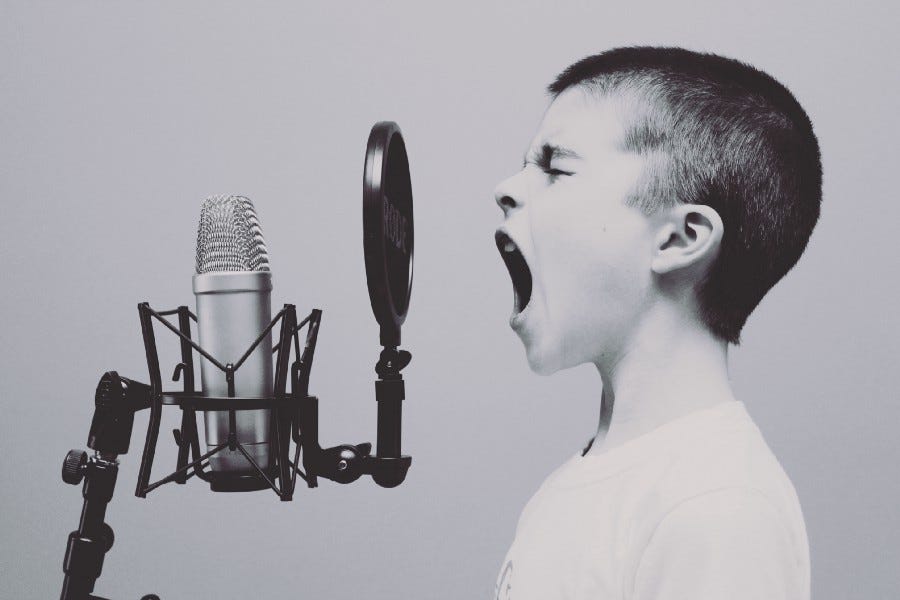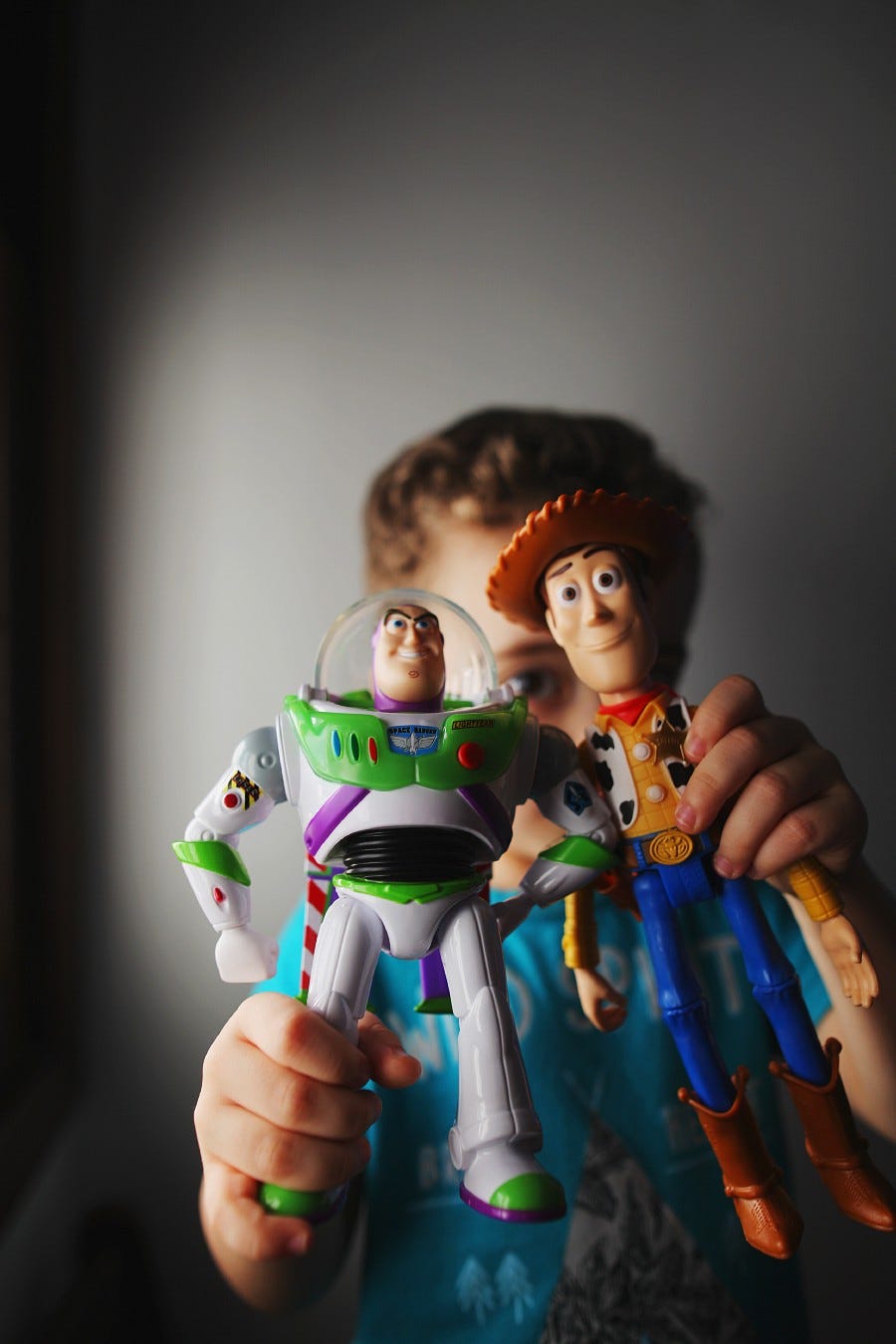The World's What You Say It Is
Words shape reality. So it's kind of important to pick the right ones.

Photo by Jason Rosewell on Unsplash
We live in a world of Mind.
This doesn’t mean we don’t inhabit a shared reality or that the physical world doesn’t exist, but the more we discover about that world the more we realise how much our perception shapes it. It’s a neat irony: science, the most objective of disciplines, has been telling us for centuries that life is inescapably subjective. We never encounter “the world” as such, just the small slice of it that our ears, eyes and brains are equipped to process.
And who’s to say that our perceptions are any less “real” than the things they perceive? When you think about it, doesn’t something only become a “thing” with boundaries, contours and connotations when it’s perceived by a mind, making things that happen out of the reach of consciousness kind of an inert irrelevance? Take an observer away and there are no such things as shapes, events, objects or colours — these are all boundaries that conscious brains create to impose order on an otherwise formless chaos of particles.
In other words our universe is Toy Story in reverse: the toys only come alive when they’re looked at.

Photo by Silvana Carlos on Unsplash
One cool implication of all this is that there’s no such thing as an objective world, not one we can access anyway. We’re used to seeing some ways of perceiving reality as objective (science, logic, legal evidence) and others as subjective (spirituality, mythology, emotion, poetry). But what we really mean when we say “something’s objective” is “everyone agrees on it”. You see something under a microscope and show it to your friend, and she agrees it’s there. You stub your toe and 9 people witness it, and everyone agrees that you’ve stubbed your toe. What we all agree on is objective (real). What we experience inside is subjective (less real).
But most of what we think of as “objective reality” doesn’t stand up to much scrutiny. If you stub your toe all that’s happened on the purest physical level is that some atoms have collided with some other atoms, but all ten people in the room filter the event through their shared evolution, biological makeup and culture and interpret the event as you stubbing your toe. That’s not objectivity, it’s intersubjectivity — in other words humans agreeing with other humans about things. That’s why Wittgenstein says that if a lion could talk we wouldn’t understand it.
We’re still tempted to call logic, science and immediate sense experience realer than inner mental states and emotions because they’re democratic. ‘Hey, look who just stubbed their toe’ applies to everyone, whereas ‘That hurt!’ only applies to you. And you can’t win a rational debate with ‘That hurt!’
The problem is that a lot of the things we all agree on aren’t based on science, logic or sensory experience — money, the law, government authority, human rights, and even the meanings of words are blatantly arbitrary creations. And yet these things utterly dominate our lives. No-one but a space alien watches a coronation and thinks it involves nothing more than putting a pointy hat on someone’s head. For the king’s subjects all the symbolism and pageantry add up to a totally solid agreed-upon reality, and we act as if the pointy hat gives him authority over us — so it does.

Photo by Cristina Gottardi on Unsplash
This is some nice philosophising and everything, but does it have any practical application? Asking for a friend.
Thanks again, Doubting Fred. You have no idea how much your rude interruptions mean to me.
Here’s the reason I’m working so hard to undermine the pseudo-objectivity we mistake for the “real world”: we’re used to seeing flat, neutral descriptions of reality as truer than poetic, emotive ones, and they aren’t. Both approaches are equally arbitrary, human ways of looking at things, but we’ve decided to privilege the more boring interpretations of the world over the colourful ones.
We’ve decided that an architect’s plan of your house is objective and your poem about the house is subjective, even though the one is a convenient mathematical reduction and the other is based on the experience of actually living in the house. Everyone can look at the plan and think ‘Yup, that’s the house alright’ whereas not everyone can appreciate the poem, but that doesn’t mean the poem expresses less of reality. It actually expresses more, because the thin sliver of reality that we can all agree on is just the tip of the iceberg of the human capacity to experience the world.
Instead of saying that one set of words we use to describe reality is reality (‘that’s a statue’), and that another set is a bunch of fanciful embellishments on reality (‘that’s the most beautiful representation of loneliness I’ve ever seen’), it’s more accurate to say that both sets of words are entirely human constructions and that the second set is more interesting than the first one. It expresses more of the beauty and poetry inherent to reality than the first set. It makes everything larger, more three-dimensional, more alive.
So we don’t live in the world, we create it in our image — the better the words we use to describe it, the bigger it becomes.
MAKING THE WORLD THROUGH LANGUAGE

Photo by Alexander Andrews on Unsplash
‘And God said “Let there be light”, and there was light.’ (Genesis 1:3)
We’re often told that positive thinking has the power to transform our lives, that having a confident attitude gets results, that practising compassionate self-talk makes us feel better about ourselves, that we’re more likely to solve problems if we reframe them as challenges or opportunities. In other words, use the right words and you get happier. What’s less frequently focused on is how much language creates depth.
Imagine four people walking by a bunch of flowers. The first person glances at them without particularly registering them. The second says ‘Hmm, some yellowy flowers…daffodils, I think they’re called’. The third says ‘Ah, daffodils! They’re early this year’. The fourth says ‘I wandered lonely as a cloud…’
They all saw the daffodils, but the fourth guy like, totally saw them, y’know?
Language has the power to ennoble even the most mundane experiences, and the more heightened the language you use the more you yourself expand. Our words shape our thoughts, our thoughts shape our worldview, our worldview shapes our actions, our actions shape our character, and our character shapes our life experiences. As we steer ourselves towards better and better experiences they inspire us to use ever profounder language to describe them, and the virtuous circle continues.
Hence the saying ‘No small jobs, only small people’. Any job that’s seen as a sacred vocation becomes a sacred vocation. Words can turn a dull chore into a noble task. Turn eating bread into taking Communion. Turn a long, boring highway into a ‘holyboy road, madman road, rainbow road’.

Photo by Diego Jimenez on Unsplash
In a very real sense, two people who do the same thing and describe it two different ways are doing two different things. The most obvious example of this is sex. A certain range of physical actions are required to enable sex, but the act doesn’t boil down to the actions any more than consciousness boils down to brain activity. The nature of sex is 100% decided by the thoughts and words of the people engaged in it: they can discuss what it “means” in the context of commitment/romance/lack thereof; they can bring acts that don’t qualify as sexual in biology textbooks under the sexual umbrella; they can completely change the flavour of the activity through the words they use before, during and after.
That’s why it annoys me when people say ‘You can call it “making love” or dress it up any other way you want, when it comes down to it it’s just fucking!’ If sex doesn’t “come down to” technical descriptions in biology textbooks, it doesn’t come down to swearing either. The term fucking isn’t value-neutral, it’s every bit as loaded with meaning as the term making love. And if it’s what you call sex, then it’s what you’ve chosen to turn sex into.
(Disclaimer in case Billy Connolly’s reading: I’m not calling it a bad term, I’m saying it’s one word choice among many, and you can’t try only one flavour of ice cream and say ‘The others all taste like this when it comes down to it’.)
It’s tempting to say that if we went around claiming that everything “just came down to” the flattest possible description of that thing, we’d end up no different to animals: eat, mate, sleep, repeat. But we’d probably be even worse off than animals, because they don’t go around thinking “eat, mate, sleep, repeat”. They just get on with their business without imposing boring, deadening descriptions on it. Because we can’t experience the world with the sensual immediacy that animals can (most of the time anyway) — because we’re stuck mediating our experiences through language — it’s vital that we use the most vivid, enlivening language possible.
Say ‘Let there be light’, and there will be light. And you will see that it is good.
— End of Part 1
—Here’s Part 2 in case you’re wondering




